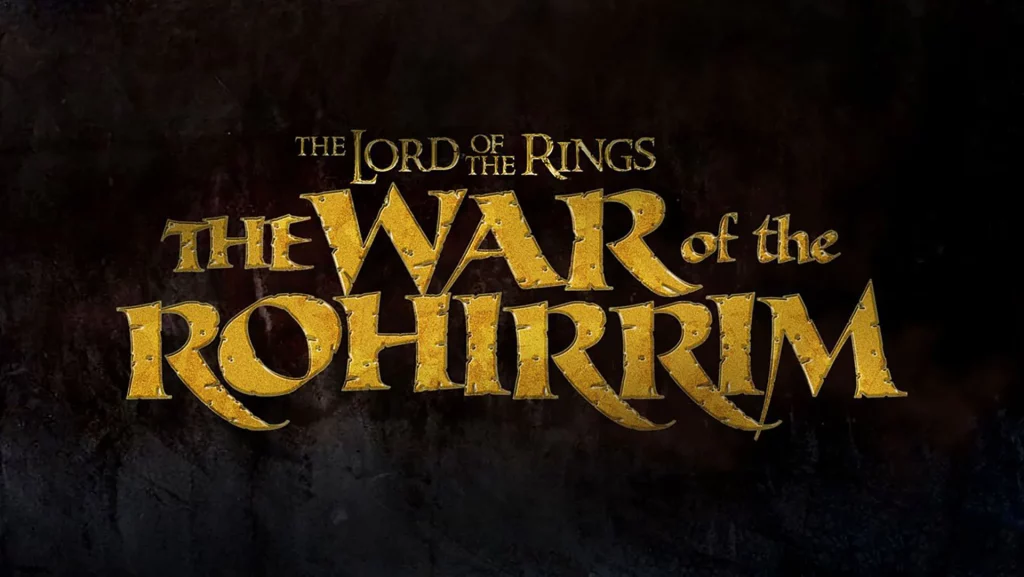The Annecy first look at The Lord of the Rings: The War of the Rohirrim is nearly here and I am vibrating with anticipation. So, to save myself from exploding with anticipation as we wait for reports to begin trickling out of France, I thought I might (self-indulgently) revisit some of the interesting highlights from my 45-minute chat with Philippa Boyens around this time last year.
I’ll also try to include a few snippets from our chat that never quite made the final article.
Saruman. Will he appear, or won’t he?
“I can neither confirm or deny the presence for Saruman. I saw your article about it. Very clever.”
Philippa Boyens.
It can be disconcerting when your interviewee tells you that they’ve been reading your thought-bubble waffle. Right now, I still maintain Saruman will appear somewhere near the conclusion of the film in a cameo and take up residence in Isengard. Put it on your bingo card.
Helm, Haleth, Hama … Héra
“Someone suggested another name and I went: ‘Nope, it’s gotta start with “H”, sorry’ And, actually, Fran Walsh named her. I told her we were stuck. It’s actually Héra [ed: pronounced more like hair] that’s why it has the accent. Not, not so much based on the Greek Hera, but a nod to the Anglo-saxon.”
Philippa Boyens.
For the record, Boyens told me that Fran Walsh and Peter Jackson have occasionally been serving as unofficial sounding boards for ideas, but are not actually involved with the project.
Héra and the Lady of Mercians
“Where we turn to [for an insight into Héra] … is to Aethelflaed, the lady of the Mercians. Alfred the Great’s daughter. She never ruled as a queen per se; she’s known as the Lady of Mercians. But she seems to step in when her people needed her. So it was a natural leadership role. It was a leadership role that: all the men were slain [so] she stepped up.”
Philippa Boyens.
Boyens says that their creation of Héra very much draws from historical sources fit the historical inspiration that Tolkien himself drew on for his stroytelling.
Legitimacy and Dunlending grievances
“One could almost say that Wulf taking Edoras was a legitimate challenge. If it had ended there, perhaps [history] would have been written in a different way. He would’ve been the victor, [and] maybe people would’ve seen that as legitimate. I mean, he did have a claim — a very tenuous claim – through Freca to one of the Kings of the first line of Rohan.”
Philippa Boyens.
Anyone who’s read beyond the main text of The Lord of the Rings will get the sense that the Dunlendings of southern Eriador were treated badly by the Dunedain. First Numenoreans denuded southern Eriador in a quest for lumber and drove out or oppressed the Dunlending’s ancestors. Then, later, Gondorians granted the Rohirrim the lands of Calenardhon which effectively pushed the Dunlendings out of the Gap of Rohan. I’d be aggrieved, too, but I also wonder if Wulf may end up using the Dunlendings (and their anger) for his own ends.
Edoras besieged
“You get to go and visit things that you know [from the books]. Fans of the film will get to see, you know, Edoras besieged. It’s quite a shocking moment. Cause you know, we didn’t see that in [Peter Jackson’s The Lord of the Rings].”
Philippa Boyens.
Per book, one of Helm Hammerhand’s sons meets a grim end at Edoras, and I think it’s likely this will prove a pivotal moment for Helm himself. He’s hard man for sure and becomes even harder by the end of his life, but why is he like that? It seems Kamiyama is intent on exploring this.
We like it darker
“There’s a moment in the film, which is incredibly gut-wrenching and powerful where Wulf commits himself to a course of action he cannot turn away from. And once he does that, the story darkens.”
Philippa Boyens.
I … I still can’t think what this moment might be. Bringing in the Corsairs of Umbar? Some underhanded deal with the mysterious Lord Frygt character who we’ve heard (so little) about?
A ghost story
“It begins with these quite large-scale battles, but it actually becomes more intense and more claustrophobic almost. And the nature of the film changes almost into a ghost story.”
Philippa Boyens.
This is a purely personal opinion, based partially on what Philippa said and on what I know of the tale. I think Helm is the ghost in question. Both haunted by his inability to protect his land as king, and haunting (terrorising) his enemies with his nightly ventures out from the Hornburg.
The Mumakil at Edoras
“Was it you who wrote the article on TORn about the Mumakil? A lot of your supposition was right in that article from our viewpoint. It was why Gondor was not coming [even though they were Rohan’s] ally. [So], yes, because of the reasons you suppose. The only other, the only other hint, I think, in terms of the Mumakil is the notion that, of course these were in the south. And, also, the notion of mercenaries. I’ll just say that.”
Philippa Boyens.
Oh dear. Now I kinda know how it feels to be on the other side of the fence.

About the author: Staffer Demosthenes has been involved with TheOneRing.net since 2001, serving first as an Associate News Editor, then as Chief News Editor during the making of the Hobbit films. Now he focuses on features and analysis. The opinions in this article are his own and do not necessarily represent those of TheOneRing.net and other staff.


